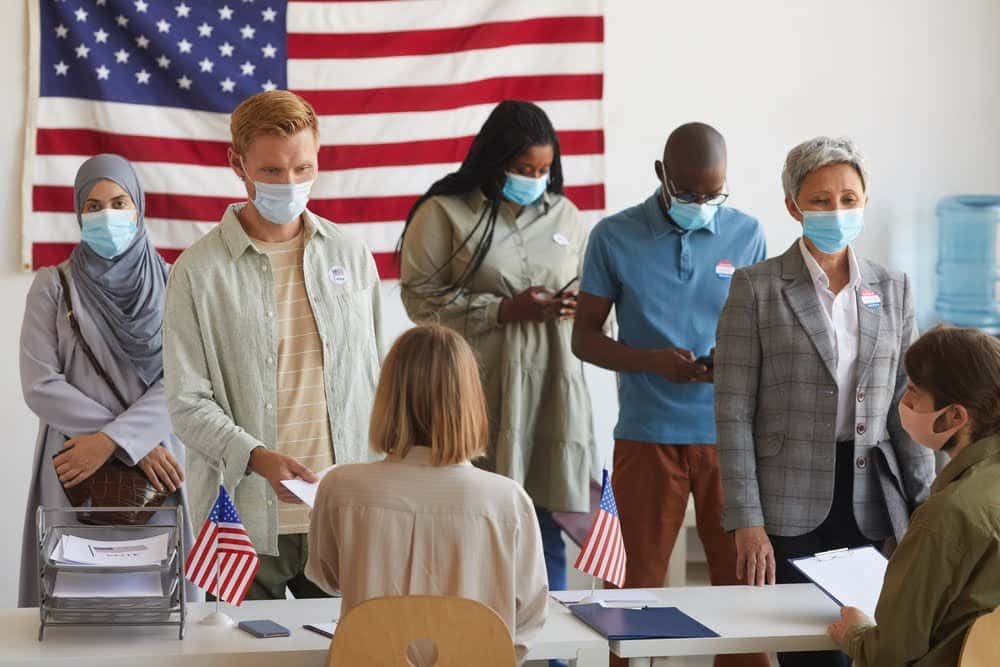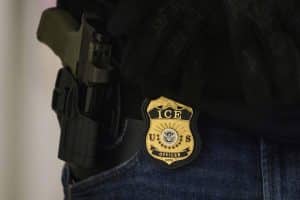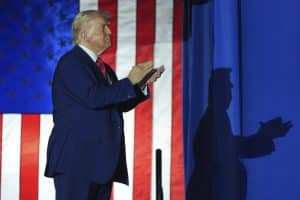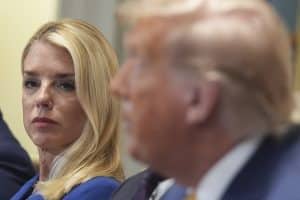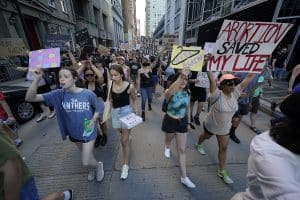If you’re planning to cast your vote in person on November 8 you may notice an increase in the number of people inside and outside of your polling location.
Who are these people and why are they here?
Following the 2020 election, the Republican party launched a slew of baseless conspiracy theories alleging voter fraud. To date, and while a small number of bad actors on both sides of the aisle have been revealed in Pennsylvania, the fact of the matter is that there is very little voter fraud in Pennsylvania (26 cases in 2020) regardless of whether you vote in person or by mail.
This year, all political parties want to make sure that everyone is playing by the rules.
Here’s who you may see:
Election Officers
Judge of Elections
The judge of elections is an elected official who must be a qualified voter within the district or precinct they oversee. Responsibilities include directing the majority and minority inspectors, poll workers, provisional ballots and voting challenges to ensure compliance with state and county law. This is a paid position.
Majority and Minority Inspectors
The majority and minority inspectors are elected officials. Both inspectors must be qualified voters within the district or precinct in which they will work. The inspectors must work together and are tasked with overseeing the polling location, keeping track of voters and making sure election returns are delivered to the county election office at the close of election day. This is a paid position.
Poll Workers
County boards of election recruit and appoint workers prior to each election. Poll workers must be qualified voters within the county in which they will work. Clerks assist voters with the check-in process and the distribution of paper ballots. Machine inspectors assist with the operation of the voting equipment. These are paid positions.
Bilingual Interpreter
Spanish specific to Berks, Lehigh and Philadelphia Counties
Chinese specific to Philadelphia County
This is a paid position.
All of the above election officers are to perform their duties without partisanship and, while responsibilities are generally uniform across Pennsylvania, they may vary county to county. Election officers are required to complete mandatory training provided by the local board of elections, swear an oath to uphold the laws governing Pennsylvania elections and answer only to county and state election officials.
Others
Constable
Elected peace officers are charged with keeping order at the election polls to ensure that no qualified voter is obstructed from voting. This is a paid position.
Poll Watchers
No one may declare themself a poll watcher and try to oversee voting or voters on election day. A poll watcher must be a qualified voter in the county where they will be watching and must hold credentials issued by the county board of elections.
The number of poll watchers may vary at different polling locations.
Each candidate may appoint two poll watchers for each election district in which the candidate appears on the ballot but only one poll watcher may be present at a polling location for each candidate.
Each political party having nominated candidates on the ballot may appoint three poll watchers for each election district at any general, municipal or special election in which the candidates of such party are on the ballot. Only one poll watcher may be present in the polling place at one time for each party.
Most importantly, poll watchers may not interfere with the voting process. They are restricted as to where they may watch. They may not interact with voters or in any way interfere with voting. To learn more about what poll watchers may or may not do, click here.
Who you should NOT see inside a polling location? Police officers.
Who is standing outside the poll?
Poll Observers and Poll Monitors
Poll observers and poll monitors are not permitted inside a polling location, need no credentials and must be stationed at least 10 feet from the poll’s entrance. Various not-for-profit and political groups send observers or monitors who are tasked with reporting information they may see, such as polls that didn’t open on time or long lines of people waiting to vote. They also report any type of voting disruption they may hear about from voters exiting the polls, including individuals who were not permitted to vote or who couldn’t vote due to equipment failures. For voting advocacy groups, poll observers and monitors are their eyes and ears on the ground. Groups, such as the ACLU, have lawyers at the ready should a situation require legal intervention.
Campaign Staff
Outside the polls, campaign staff may distribute information to promote candidates. Pennsylvania law allows electioneering so long as it takes place at least 10 feet from a polling entrance.
Pennsylvania polls open at 7 a.m. and close at 8 p.m. If you’re in line when the polls close, stay in line – you will be allowed to vote.
The Pennsylvania Department of State and The Brennan Center provided content for this article.
